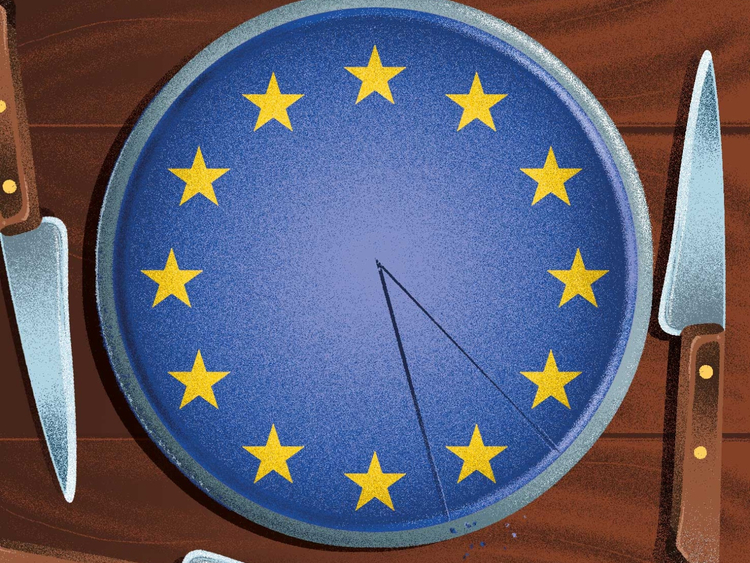Forty years ago, two fully laden Boeing 747 jumbo jets collided on the runway of Tenerife North airport. It remains the world’s deadliest aviation incident.
For the families and victims of those who died on the KLM and PanAm planes, on March 22, 1977, one of the series of events that led to the tragedy is that the two planes were only diverted there because of a bomb threat at Gran Canaria airport. It was also a foggy day, the apron taxi areas were congested, and the air traffic controllers were overworked.
The bomb threat at Gran Canaria came from the Canary Island Independence Movement, and it had set off some small bombs previously. Within two years of the tragedy, the armed movement had petered out, and there’s only a small political faction left now.
But what the incident shows is the dangers posed, unforeseen or otherwise, of independence movements. And the recent events in Catalonia show too that the mainstream political parties and governments of the European Union (EU), will not support those who broker or behove separatist causes or movements.
Right now, the leader of the suspended Catalan regional assembly, Carles Puigdemont and four of his cabinet colleagues are fighting extradition to Spain as they face restrictions in Brussels while they contest the charges in a Europe-wide arrest warrant. They fled to Belgium because of its generous political asylum laws, but that might have been a calculated mistake on their part. Belgium is a nation that is wrestling too with the very real possibility that it could one day be split into two separate entities.
Flanders, the more prosperous and Dutch-speaking portion of the nation, has 6.4 million people. Like many European nations, it is ruled by a coalition government, and the pro-separatist New Flemish Alliance is the largest party in the federal parliament and a member of the ruling coalition.
There are elections due in 2019, just as the United Kingdom is scheduled to leave the Brussels-based European Union. The events surrounding Brexit might make it all the more attractive for Flemish voters to push again for full separation too from Belgium. Wallonia, with its 3.6 million French-speaking voters, largely want to remain in Belgium, or whatever might be left of it.
While French President Emmanuel Macron is pushing for a more united and stronger EU, he needs to also keep one or two areas within his own nation that are pushing pro-separatist and independence agendas.
While ETA, the Basque terror group, has disavowed violence, it is decommissioning its weapons and has this April committed itself to purely political ends, its five-decade terror campaign killed more than 800 civilians, security and police officers, judiciary and government workers. It is a movement that seeks an independent homeland carved out of southwest France and northeast Spain, and is an existential threat too to that nation’s Prime Minister, Mariano Rajoy, preoccupied with Catalonia and limiting the fallout from Puigdemont’s declaration of independence.
Macron too must also keep an eye on Brittany, in northwest France. Breton culture, music, language and politics focus on an identity that is Celtic, and has more in common with the Irish, Scots, Welsh, Galicians and others than with the rest of France — and half of the residents of Brittany describe themselves as ‘Breton’ rather than French.
The French Mediterranean island of Corsica, the birthplace of Emperor Napoleon, has endured a pro-independence terrorist campaign since the late 1960s. Like ETA, the National Front for the Liberation of Corsica has now disavowed terrorism, and Pe a Corsica holds 24 of the 51 seats in the island’s regional assembly.
German Chancellor Angela Merkel cannot be complacent either, and the creation of Germany in 1871 from Prussia, Bavaria and a host of other small states helped create a strong pro-independence sentiment in Bavaria, one that was dormant until the 1950s. Since then, one in four Bavarians support independence from Germany, a move that would cut out the economic powerhouse around Munich.
In Italy, and with elections due next year, there are strong separatist movements at play in Lombardy, Umbria, the Veneto region surrounding Venice and in Sicily. Until its unification that ended in 1871, loyalties for many Italians would lay as far as the cathedral bells they could hear! A little over 150 years later, that seems to be coming through loud and clear again.
While United Kingdom Prime Minister Theresa May draws on the support of the pro-union Democratic Unionist Party to remain in power, there is an element in Northern Ireland that believes the province would do well independently rather than as part of the UK or in a united Ireland, as Irish nationalists and republicans want.
In Scotland, Scottish Nationalist Party leader heads a third-successive pro-independence government. While the September 2014 referendum rejected her separatist agenda, the party is committed to a second referendum. With the UK due to leave the EU in March 2019 and a firm majority of Scots in favour of remaining, that seminal event may provide the renewed impetus to hold that second all-or-nothing vote.
In Wales, Plaid Cymru have been successful in reinvigorating the Welsh language and pushing for more devolved powers for the principality. Should Scotland go, and with Irish republicans seeking a referendum on re-unification with the Republic of Ireland inside the EU, the UK could potentially then be just Wales and England — a scenario that would rejuvenate Welsh independence desires.
And the Danes? They’re worried about the Faroe Islands between Scotland and Iceland going their own way, along too with loss of one of its islands in the Baltic Sea.
Given all the above, there is no leeway for the EU or any of these constituent member states to go soft on separatists. If anything, they might view the various disparate movements as a great cumulative threat to the unity of Europe above the loss of the UK through a relatively organised if chaotically planned Brexit.









